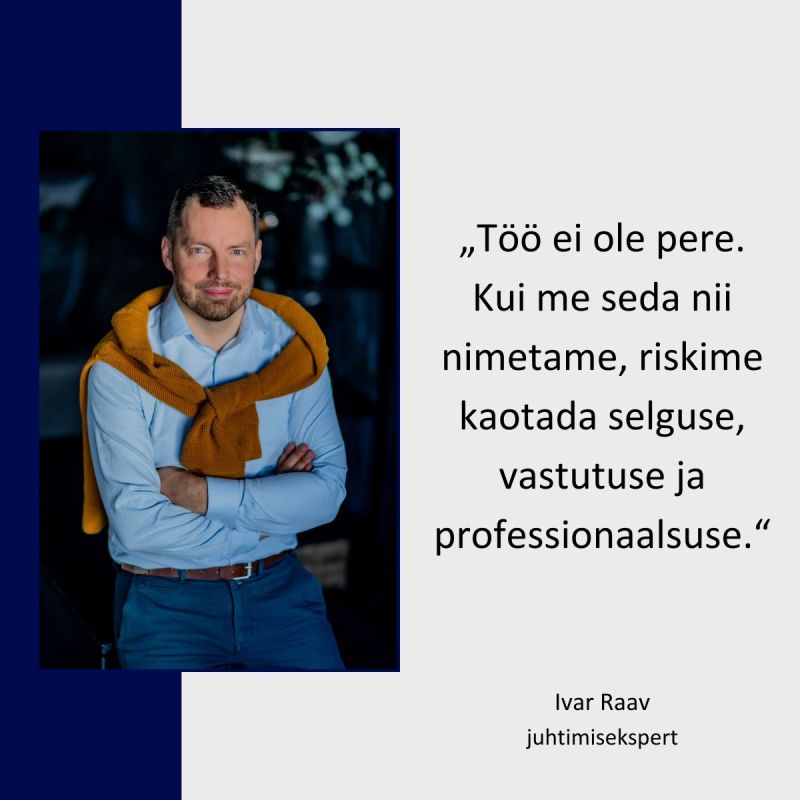This family stuff sounds like an expression of caring and unity. In reality, it often refers to the blurring of boundaries, the dispersal of responsibilities and subconscious dynamics that are not part of the work context.
💥 Work is not family. And it doesn’t have to be and it shouldn’t be. Even if it is a family business, a clear distinction needs to be made between work and family. I will give 7 reasons, based on the principle of systemic management and my own experience, why this metaphor is extremely dangerous:
1. The family is unconditional, the job is conditional.
The family does not “fire” children. However, there are expectations, results and limits in the employment contract. If these are ignored, there are natural consequences.
2. The family is an emotional system, work is a functional system.
The work system functions as intended. When an organisation becomes too emotionally entangled, clarity is lost.
3. Family is not optional, work is.
We don’t choose our parents, but we choose our work. Slavery ended in Estonia a long time ago. When a leader takes on the role of “father” or “mother”, people unconsciously fall into the role of the child and this creates dependency. The leaders start giving out ‘nursery’ titles etc. Trust is lost, which is the basis of performance.
4. There are other systemic rules in the family.
For example, loyalty and role stability. At work, roles change according to the needs of the organisation.
5. Family at work can inhibit honest feedback.
When we are “family”, we don’t dare say uncomfortable things. Pseudo-bonding and passive sabotage ensues.
6. It’s a disincentive to leave.
Leaving work is a normal part of working life. Leaving your family, on the other hand, can feel like a betrayal. When the two are mixed, the leaver is left with a sense of guilt and shame, which is a very big cause of underperformance in organisations – an invisible, living past even after leaving.
7. The use of family parallels brings with it the wounds of childhood.
When someone treats an organisation as a family, colleagues often start projecting traumas from their family relationships: “leader = father”, “colleague = brother”, etc. The result is not professional collaboration, but a subconscious family drama in a victim-aggressor-saviour dynamic.
Which is an additional and crucial factor. The word FAMILY can mean a supportive environment to one person, pain, violence and avoidance to another. So when a manager calls a work team a family, he or she is subconsciously bringing out the whole story and the attitudes-behaviours in micro steps that a team member has experienced in his or her own family.
As I write in my book “The Footprint of Leadership”:
“When a leader becomes a rescuer or a surrogate for mother and father, the team ceases to function as a professional set of adults. People begin to behave on the basis of roles, not responsibilities.”
❌ Work doesn’t have to and shouldn’t be a family.
✅ Work must be a safe, clear and meaningful place where everyone has a responsibility and a role.

